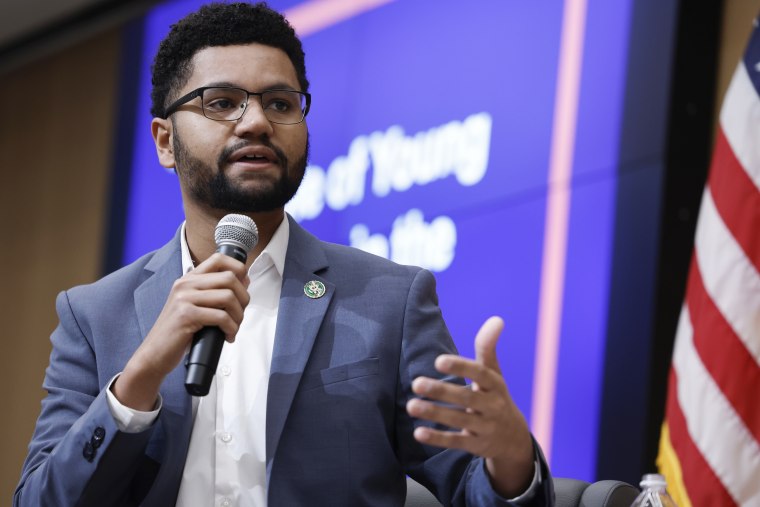Rep. Maxwell Frost, D-Fla., testified on Wednesday that federal regulators should expand candidates’ ability to draw a salary from their campaigns, citing his own experience struggling financially as he ran for office.
“I was able to slum it out for a year and a half, but it was difficult. I put myself in a bad financial place. But, I’ll be honest, if I had a family to take care of I probably would have had to drop out midway through the race,” Frost told the Federal Election Commission during a public hearing as the body considers amending the rules surrounding candidate salaries.
Currently candidates can draw salaries from their own campaigns, beginning after the primary filing deadline and ending when they are no longer a candidate or until the day of the general election. That salary can amount to whichever figure is lower: the minimum annual salary for the federal office the candidate is seeking, or the income the candidate received before running for office.
Frost, the first member of Generation Z to serve in Congress, argued that running for office is a full time job. And he called on the FEC to allow candidates to begin drawing a salary “the moment they begin their campaigns” and cover health care and dependent care. Frost also pushed for the panel to set a “daily rate” for a salary.
Frost said he took a financial hit when he ran for office last year, going into debt and damaging his credit score in the process, and was denied an apartment in the District of Columbia. Campaign finance documents show that Frost drew a salary of $9,382 from his campaign in the last election cycle.
“Voters regularly share that they’d like candidates from all walks of life. And if we make tense easy changes to the system, we can ensure that more people can participate in democracy,”
It’s not clear when the FEC might rule on new regulations surrounding candidate salary. But not all of the speakers in the hearing’s first panel supported expanding candidate salaries.
“Our action 20 years ago was a mistake,” said Brad Smith of the Institute for Free Speech, who supported the 2002 rule allowing candidates to draw salaries when he served as FEC commissioner.
Smith said the panel does not have the legal authority to allow campaign contributions to be converted into personal funds, and suggested they open the door to potential corruption or use of funds on luxuries.
“I don’t know what you can call giving campaign funds to a candidate to cover personal living expenses other than a conversion to personal use,” Smith said.

